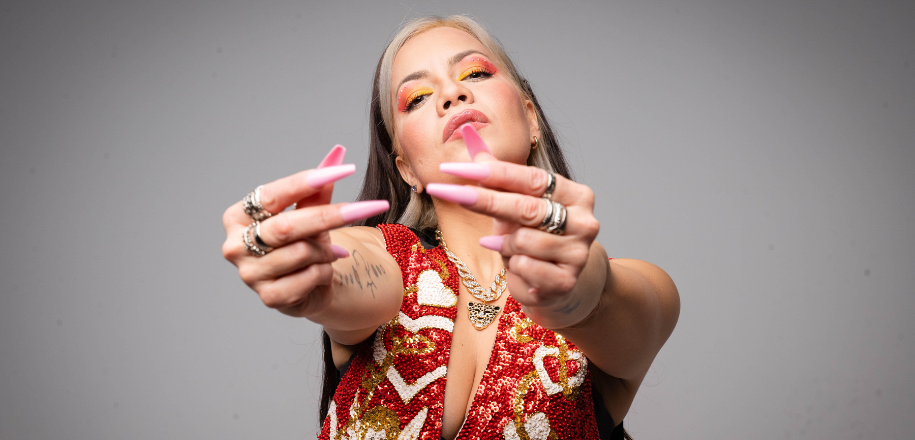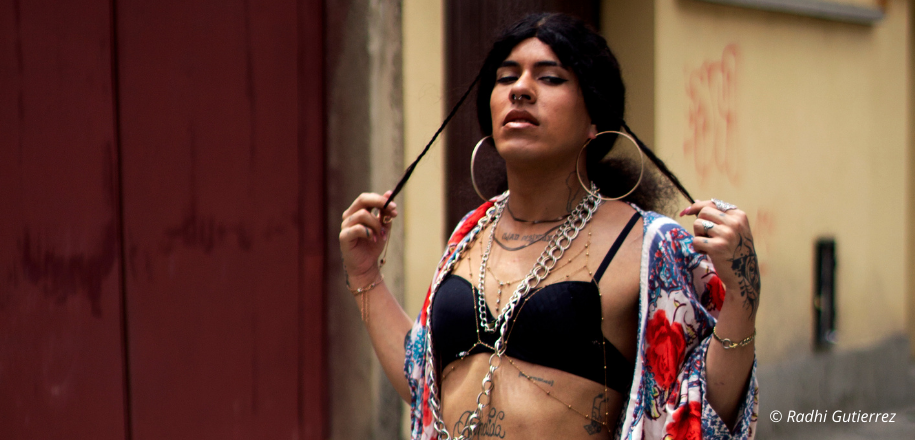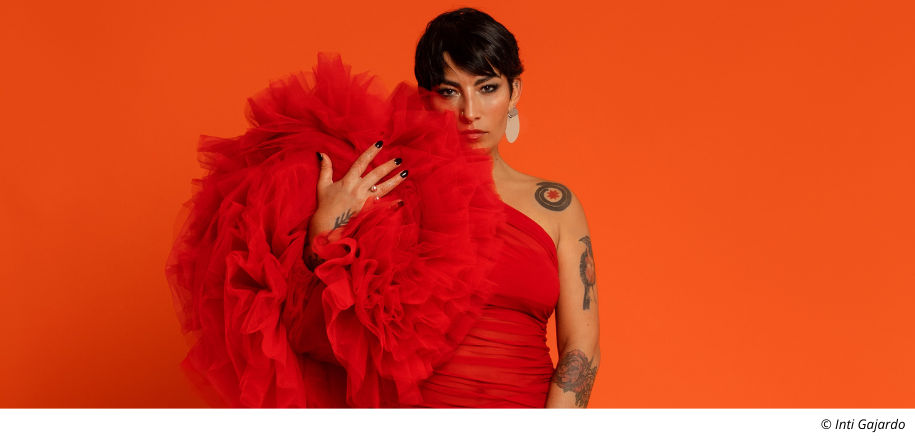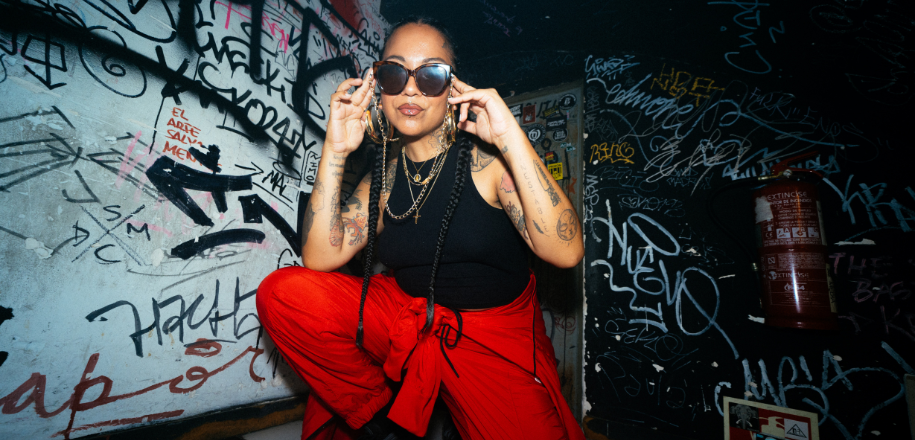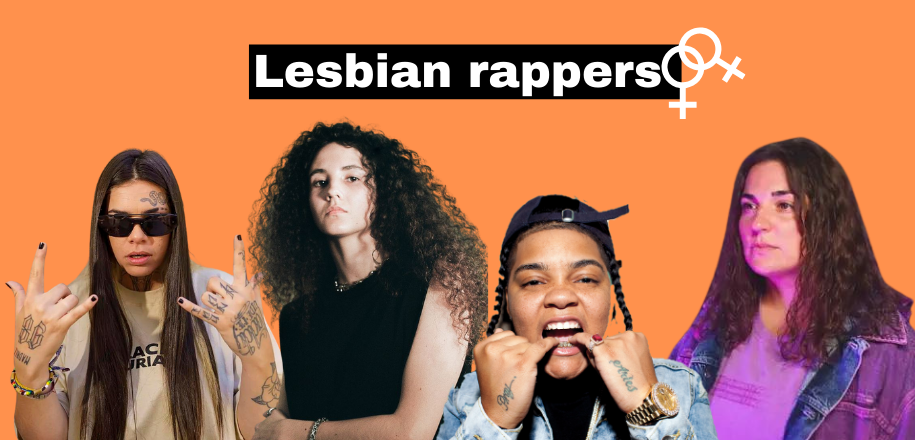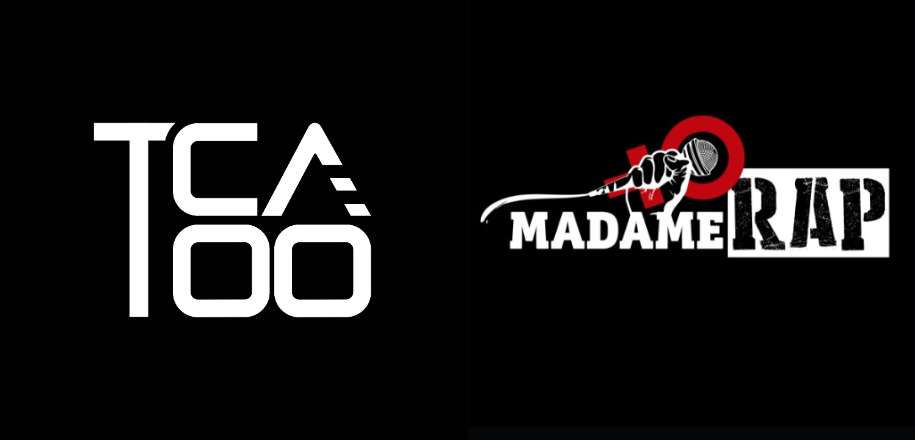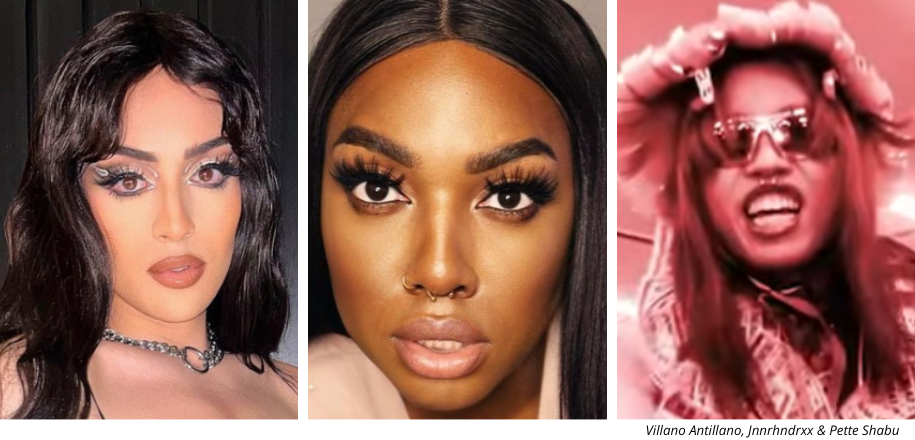Born in Venezuela and based in Miami, DXVA feels “out of time”. After working in radio for twelve years, she launched her musical career at the age of 30, 5 years ago. Now a rapper, singer and songwriter, she told us about her atypical career, the influence of the 90s on her poetic and mystical art, and her feminism.
You are a rapper, a singer, and a composer. Are you self-taught or did you receive any training or musical education?
My first encounter with music was at a very young age, I performed lyrical choral singing all my childhood and adolescence, I received singing lessons during those stages, and I represented my country in some international choir festivals. But at the age of 16 I stopped singing. I never took music lessons, nor played instruments, I consider that I have a very empirical musical hatred, because my notions of music have always been basic.
Do you remember how and when were you introduced to hip hop for the first time?
Hip hop and rap have always been genres of my consumption, I listened to rap since I was little, but I am multi-genre in music, I dare to say that my musical influence is very wide, American hip hop culture, salsa, rock, pop, jazz, electronic music, merengue from the 90’s, Venezuelan folk music.
Working in radio since I was 18 years old also gave me a wide variety of tastes and sounds, but rap was like “a forbidden love” because it was the only genre that was not played on the radio, maybe that’s why I consumed it in my privacy and in my solitude, because that was something forbidden, so where is the denial, there I was, as my mother says: headwind.
In my country there are great exponents of rap culture, among them we have Nigga Sibilino, Apache, and Canserbero. But the first rapper I listened to was Vico C. I also listened to a lot of American rap in the 90s.
How and when did you start rapping?
I composed my first song in 2019, I was 30 years old, at that time I lived a very confusing, and I would say even depressive stage about my talents. I was writing verses just for hobby, while “recovering my passion” for work. At the end of that year a great friend who is a rapper “Chevy Style”, came from Madrid and taught me the metrics of rap at 3:00 am on a beach. I remember he told me “DAVA you have a flow like a rapper”.
The next day I woke up with a new hope, to create, to explore if I could really write and rap. I was blown away by the idea, and I started writing and practicing every day in my room.
I consider myself a free artist, and I have never named myself as a rapper. I respect rappers and the hip hop scene a lot, I have always been a loyal follower.
Your music mixes different sonorities, ranging from electro to old school rap. How would you describe it?
My music visits different genres within urban music, I find my greatest creative strength in rap and hip hop, but we are fusing electronic beats and elements of 90’s rap rock.
My producer “CHCKN” is an artist who comes from electronic music and has managed to interpret the Californian West-Coast sound making a very disruptive translation into Spanish, dirtying the vocals, and giving it some shades of 80’s grunge rap, but at the same time it is an offer that is still commercial, when everything comes together, the lyrics, the structure, the sound and the delivery.
How do you usually write? Do you have any favorite topics or routines?
Curiously I only write if I feel very connected to the creative source, for my aka is DIVINE FLOW, I respect my composition process, I always write alone, but next to my producer, and many times I write about the beat that he is creating at the moment.
I don’t freestyle, but I start looking for melodies, which I then translate into verses. I always think that the music is up there in a cloud, and at some point, I can read it and download it. I consider myself a channel in that sense.
Your track “2090” pays tribute to the 1990’s who inspired you. Who were your role models at the time and what do you think is the most inspirational about this area?
2090 is exactly a tribute to the era that gave me the woman music to nurture me artistically, all the artists I mention in the song inspired me: Snoop Dog, Eminem, Green Day, Spice Girls, Britney Spears, Madonna, Nirvana, No Doubt, Shakira. My biggest musical influences come from the 90s’era-Latin music.
I could say a lot of names, and I refer in the chorus “We send the flow back, we pray to the God of the 90’s” a little bit feeling that the God of the 90’s attended to other needs, because we are much less hyper connected, it was another rhythm of life, and I am happy to have lived that era.
The emotion I had when I wrote that song was nostalgia and longing, sometimes I feel that I don’t fit so much in the trends of today’s world.
Your latest track “Martina” tells the story of a woman who robs a store and kills her own sister without knowing it. What inspired you this track?
Martina more than a song is a hard chronicle that narrates an event from a deep and detailed look I had of a nightmare I had in 2021, it was a very lucid dream, I only made use of narrative techniques and rhetorical figures such as description, similes, personification, metaphor and analogies, until it can reach the outcome of a very unfortunate crime, which is very common in Latin American society, but also very rarely told.
Martina is a mistake that deprives freedom, breaks, sensitizes and conscientizes the best choices in life, risks, and misfortunes.
How would you define your own feminism?
My feminism I would say is fair, critical, powerful, and empathetic. Since I was a child, I have always been questioning social conventions, marriage, motherhood, religion, I am always curious, but I don’t go around with a judgmental wand.
That’s why I like satire so much, much of my music is written in the form of satire, it allows me to zoom in on double standards and the way we interrelate. I like to empower women, a lot. But men too, humans, animals, plants, I think I like to empower nature. And for that I must constantly break with stereotypes.
Are you connected to the Venezuelan hip hop scene? If so, what are the fe*male and queer rap scenes like over there?
I’m not connected to any scene at the moment, I’m creating my scene. I had to stop constantly looking at what other artists were doing because I started to notice that it was altering my art, comparing myself and feeding my insecurity. Now I am focused on what I want to propose.
What are your upcoming projects?
My single “Flota” was released in June. It is a song that talks about how I interpret and feel anxiety, fear, my relationship with some of society’s demands, loss and limiting emotions.
The chorus “Súbete al beat y flota” alludes to how music represents my lifeline. In the video DXVA faces “fear” and “anxiety” two characters with whom he fights and at the same time dances in a boxing ring, as that strong opponent, representing the internal struggle that can be in the minds of many people, who think it is too late to fulfill their expectations, to learn, to train for a dream.
This “fight” also represents the encounter between polarities, darkness and light, pain, and beauty, the rough and the subtle.
What do you think about Madame Rap? What should be changed or improved?
I love that there are still media that work so beautifully for the love of art and music, you are a representation of that, I love your content, I always look at it, I congratulate you for such excellent work and thank you for considering me.
Find DXVA on Instagram, TikTok, Facebook and YouTube.

